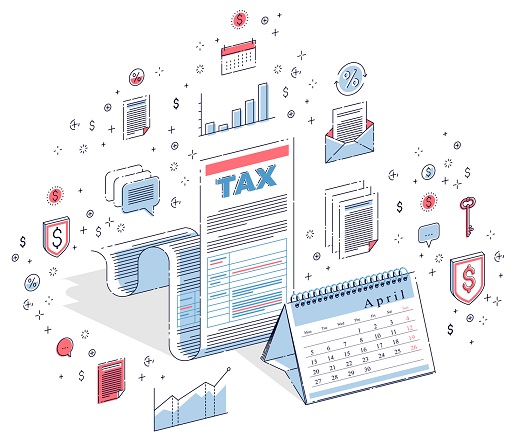Latest News
Accounting | Tax | HR | Legal
Request of extension for Tax Return in Spain
The finance experts of the Tax Agency have request an extension for tax return until September, initiative taken due the strong pandemic of COVID-19, the intention is to extend the time frame of three months so tax payers and specially senior citizens could attend in...

Extension of the Community of Madrid’s tax moratorium
The Community of Madrid has decided to extend the tax moratorium again during the period of the Pandemic crisis for Coronavirus. This measure has been in force since the middle of March and will remain for at least another couple of months as a presentation of the...

Inheritance in Spain: Management, documents and procedures
Inheritance in Spain: When family members die, the questions about the inheritance arise, the heirs, the procedures and the step that needs to be carried and the taxes to be paid in order with the payments and obligations. In many cases the main question is, Where do...

Deferral of inheritances and donations tax from Community of Madrid
The Community of Madrid in conjunction with the Regional Ministry of Finance & Public Service, will continue with the referral/postponement for the payment of the duly and assigned taxes and own management until the end of the crisis for Coronavirus. The...

COVID-19 in Spain: Restrictions tightened, deadline remains
The first known case of coronavirus traced back in Spain at the end of February. Until 9 March, no measures were considered to mitigate its spread. On 8 March, on the celebration of International Women's Day, more than 100,000 people were still manifesting on the...

Fiscal measures relating to periods of coronavirus in Spain
Coronavirus in Spain: On 15 March 2020, the Spanish government declared a state of alert. This is now being extended and will last until the 11th of April for the time being. As a result of this decision, all workers will have to work from home if possible. In order...
The Temporary Suspension of Employment Contracts in Spain or ERTE
The Spanish Council of Ministers approved on 17th March a series of measures of particular importance for companies in Spain. In the following look-through-chart we summarize those related specifically to the temporary suspension of employment contracts (expediente de...
Announcement COVID-19
At ARINTASS we are committed towards the excellence on providing services to our clients, but also we are highly engaged with the health and safety of our team. For that reason, in view of the current situation derived from the COVID-19 outbreak, and following the...
COVID-19: Measures to cover the needs of our clients
Given the serious difficulties that the state of alarm decreed in Spain implies for the majority of our clients, at ARINTASS we have created an ad hoc team of professionals in the labour, commercial and tax fields, to advise on the implementation of urgent measures to...
Intra-community transactions – New European Legislation
On 1 January 2020, the new VAT rules applicable on cross-border trade (intra-community transactions) come into force, following amendment of Directive 2006/112/EC.
